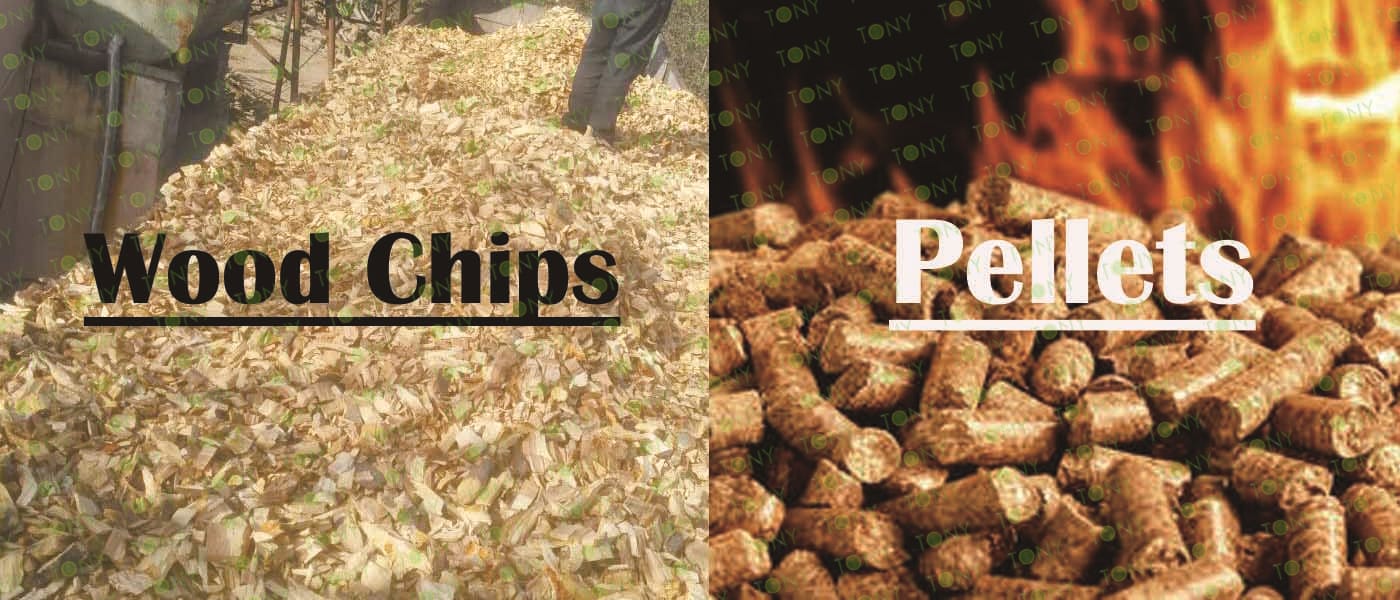Biomass pellet fuel is an environmentally friendly fuel produced by compression of a biomass pellet machine. Durability is an important performance indicator for evaluating the quality of biomass molded fuel, generally including several indicators such as the resistance to breaking, deformation, water permeability and moisture absorption of biomass molded fuel.
1. Durability
The durability of biomass molded fuel affects the packaging, transportation and storage performance of biomass molded fuel. At present, there is no unified standard for the test method and evaluation index of the water permeability resistance of biomass molded fuel. Sampling tests can be used to determine whether the durability of biomass molded fuel meets the requirements of packaging, transportation and storage performance.
In this test, the method commonly used by scientific researchers is referred to, that is, the molded fuel sample is placed at T25mm on the water surface at 27°C, and the morphology of the molded fuel is continuously observed until the molded fuel is completely peeled off and decomposed. The time that the molded fuel maintains its intact shape in water is used as a technical indicator for evaluating the water permeability resistance of the molded fuel. Each sample is recorded 5 times and the average value is taken.
Biomass pellet fuel is an environmentally friendly fuel produced by compression of biomass pellet machine. Durability is an important performance index for evaluating the quality of biomass pellet fuel, generally including several indicators such as resistance to falling, deformation, water permeability and moisture absorption of biomass pellet fuel.

2. Resistance to falling
Resistance to falling mainly reflects the ability of biomass pellet fuel to resist breaking when it is subjected to certain falling and rolling collisions during transportation, and reflects the transportation requirements of biomass pellet fuel under actual conditions. During the transportation or movement of biomass pellet fuel, a certain amount of weight will be lost due to falling. The percentage of mass remaining after the pellet fuel falls (i.e. the difference between the total mass and the loss divided by the total mass) reflects the size of the product's resistance to falling.
The test of the crushing resistance of the molded fuel is carried out in accordance with the method for determining the crushing strength of coal. Fuel rods with a length of 60 to 100 mm are freely dropped from a height of 2 m onto a hard floor, and then the fuel rods larger than 25 mm are dropped again, for a total of three drops. The percentage of the mass of the fuel rods larger than 25 mm after being broken is used to represent the crushing resistance of the fuel rods.
3. Deformation resistance
Deformation resistance mainly reflects the ability of biomass molded fuel to resist rupture under external pressure conditions, and determines the use and stacking requirements of biomass molded fuel.
Biomass molded fuel must withstand a certain pressure when stacked, and its bearing capacity reflects the deformation resistance of biomass molded fuel. It is represented by the maximum pressure of the biomass molded fuel sample when deformed and ruptured under continuous loading. Each sample is recorded 5 times and the maximum value is taken.
"Biomass molded fuel" has a high calorific value and its use cost is much lower than that of petroleum energy. It is a clean energy alternative to oil that the country strongly advocates, and has a broad market space.
4. Water permeability and moisture absorption resistance
Water permeability and moisture absorption resistance reflect the water permeability and moisture absorption capacity of biomass shaped fuel respectively, and the percentage of weight gain reflects the size of moisture absorption resistance. It determines the storage performance of biomass shaped fuel. The test method is to place the shaped fuel in a closed environment with a relative humidity of 100% and observe its mass change. In the preliminary test, the shaped fuel with good relaxation density has good deformation resistance and moisture absorption resistance. When the shaped fuel is piled up to a height of about 2.5 meters, the shaped fuel at the bottom does not deform, and the test on the mechanical properties testing machine found that it has strong deformation resistance. For moisture absorption resistance, the preliminary test method is to place the shaped fuel in a closed environment with a relative humidity of 100% and observe and measure it once a day. "Biomass shaped fuel" has high calorific value and its use cost is much lower than that of petroleum energy. It is a clean energy alternative to oil that the country strongly advocates, and has a broad market space.





















